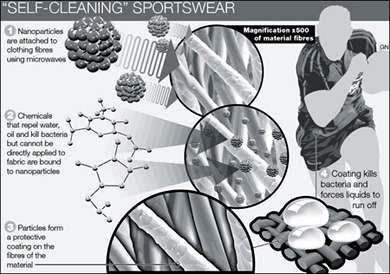Week 8: Nanotechnology and Art

I really enjoyed being introduced to nanotechnology this week, as I had not understood much about how it permeates our everyday life in so many ways. I had this mental image of scientists in a lab looking at atoms, very separate from anything I would need to use. However, I had no idea that the leggings I wear every day contain silver nanoparticles to make them microbial (Gimzewski). It is important for people to learn about nanotechnology because many do not realize how it impacts us. For example, using nanotechnology to make different kinds of pesticides or “health” supplements impacts us on a very personal level because it could influence the choices we make about how we fuel our bodies (Gimzewski). With new “health” fads being so influential these days, it is important that we have enough information to make a conscious decision about whether or not something we eat is healthy. Art has such a large role to play in this space because it can help people who are not nano-...
